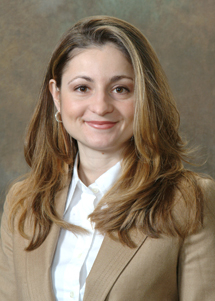SB 1359; Health Insurance Claims Tax Round 2?
By Evie Zois Sweeney
Muchmore Harrington Smalley & Associates
Senior Lobbyist
December 2012 – After a long, expensive and exhausting election season, the legislature finally returns to Lansing for the final weeks of the 96th legislature. In what is expected to be an exceptionally busy and aggressive agenda, members of the Michigan State House and Senate are expected to tackle a number of significant public policy decisions before all bills introduced in the 2011-2012 legislative cycle “die” and must be re-introduced in 2013 for consideration.
Senate Bill 1359 remains among the myriad of bills awaiting potential deliberation. The content of the legislation may be familiar to some — the bill proposes to amend the ‘Health Insurance Claims Assessment Act’ which became law in 2011, but did not take effect until January of 2012. The current legislation assesses a 1.0% tax on the “paid claims” of insurance carriers, third party administrators and self-insured entities that pay health insurance claims on health services provided in Michigan to Michigan residents. The “claims tax” was introduced as a means of preserving Medicaid dollars. The tax was intended to raise roughly $400 million annually and would help Michigan leverage or “draw down” additional federal Medicaid matching dollars. Over the last 10 months, however, the tax has not been generating the amount of revenue the state needs to adequately meet expectations regarding Medicaid funding — hence, the introduction of SB 1359.
The bill would allow the Department of Treasury the authority to increase or decrease the rate of the tax to meet the “base need.” The base need in 2012 is $400 million as stated previously, but for 2013 and each year thereafter, the base need would be calculated by the immediately preceding year’s base need adjusted by the medical inflation rate. The bill effectively allows the department to raise the rate, as appropriate, if revenues are not meeting “need.” The original legislation also established a mechanism for a proportional credit against the carrier or third party administrator’s assessment (in the immediately preceding year) if the revenue collected exceeded $400 million. This provision is no longer included in SB 1359.
The Michigan Business and Professional Association and the Michigan Food and Beverage Association have joined a coalition of business interests across the state to oppose SB 1359. The Associations will continue to apprise members of developments regarding this important piece of legislation.



Leave a Reply
Want to join the discussion?Feel free to contribute!